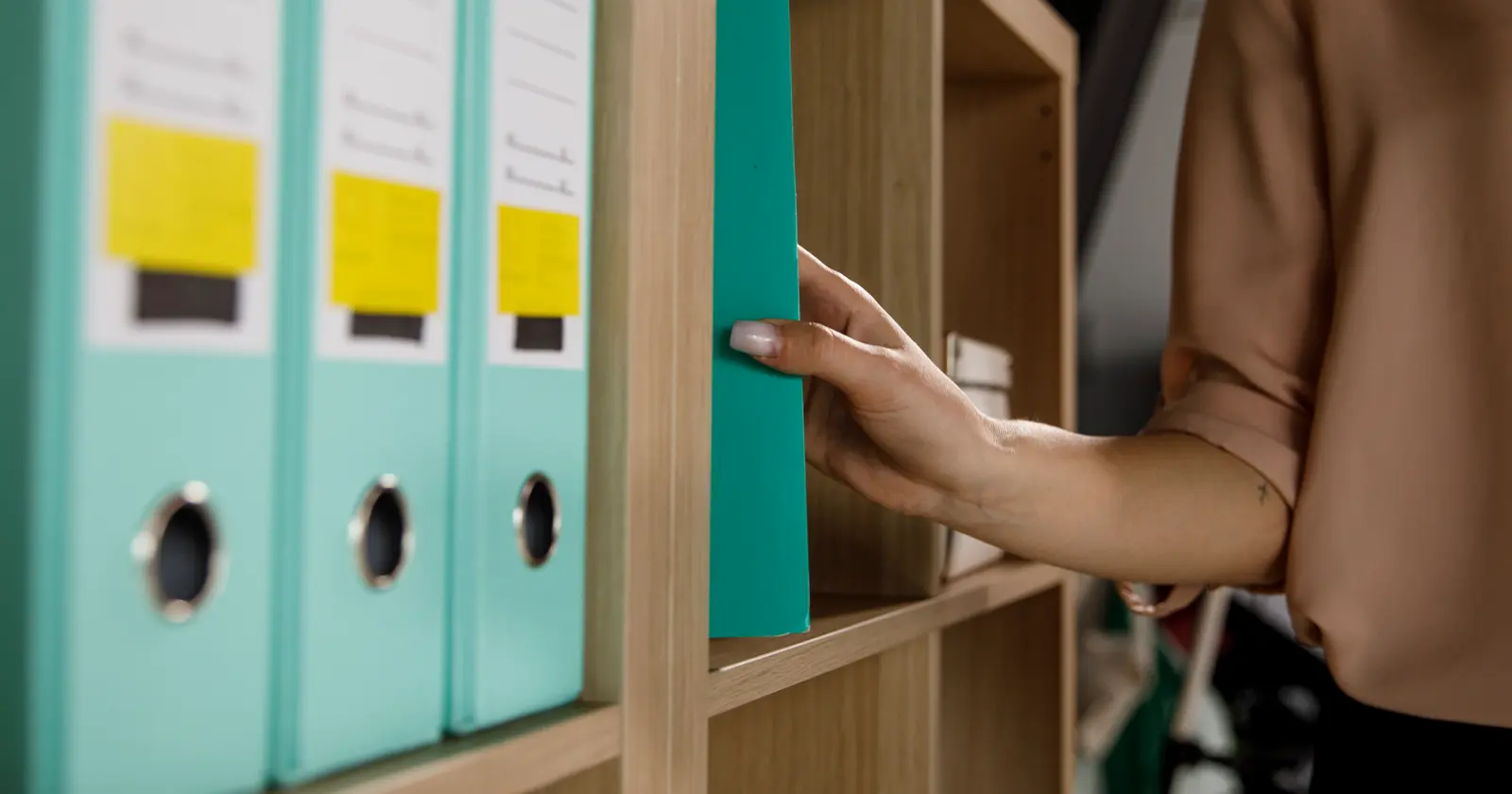Tyana Owings says the best kind of party is a collaborative one. “Find your community. Find your people,” said the director of people at Cloverleaf, an HR development platform.
Even as a team of one, she said she couldn’t think of a single project she’s implemented entirely by herself. “There are very few things that I would say I did all on my own, and that's quite intentional.”
An L&D background makes Tyana the best HR leader for an L&D company — after all, Cloverleaf has to practice what it preaches. She sat down with us to talk about how she lives and breathes professional growth, integrity, and ownership — supporting her entire company as a lean HR team.
How did you end up in HR?
I had a career in retail operations, and that's where I got the bug for L&D. At my first full-time L&D job, I sat in a central HR department and worked very collaboratively with benefits, compensation, health and wellness people — all the different departments.
I worked in a university, so we had HR people at all these different colleges — we realized everybody's doing things differently. So we built an HR academy, and in the process of having to teach HR people, I learned a heck of a lot about HR.
If HR is not the broadest function in an organization, it has to be at least one of them. You're not going to find an HR person who's an expert at every single aspect unless they've been doing this for 30 years. And a small company that can only afford one person can't afford that kind of person.
So when I left there, I went into my next role with a very transparent acknowledgement: “These are the things I'm good at, and these are the things I'm going to need help with.” And I just worked out things from there.
Since your first role, you’ve been clear on your strengths. How have you added to that list as you've grown?
I will be the first to tell you either “I'm good at this. I got it. You don't have to worry about it,” or “That's going to take me a little bit more time, but I can figure it out.”
The first time we had to do compensation leveling, I'm thinking, “I've not done compensation. I don't know what the heck I'm doing. Let’s hire a consultant.” And I told her, “I want to be the one to actually do the work, but I want you to help me make sure I'm thinking through everything. I don't want to pay you to do the work. I want to pay you to help me learn how to do it.”
The next time we had to do it, I thought, “I got this.” I checked some things with a few colleagues to make sure I didn’t miss anything. Self-awareness of your strengths and growth opportunities is really important.
Having the trust of your leadership is also really important. I had that in my first HR job, and I have that in my current role. If business leaders are suspicious of their people leader, it’s harder to step into your own knowledge that you can handle something.
Who do you lean on for support?
I have a community of people. I've been in the Resources for Humans community since 2018 when it was still pretty small. That's been a great resource.
When you don’t have an HR team, you've got to have a community where you can just ask, “Hey, what should I do?” So I've used Slack groups for that, and I've got a few people that I can text or call to say, “You've been through a similar situation. Can you help me think through this?”
I'm always learning. There’s always some new thing that makes me think, “I've been sitting in HR departments for 11 years. I haven't dealt with that one yet.”
There are very few things that I would say I did all on my own, and that's quite intentional.
What keeps you grounded on days where you're feeling overwhelmed or drained?
Coming back to why these things are happening — like mediating a conversation between two employees: I'm doing this because on the other side of it, they're going to work better together. Their conversations are going to be healthier. The product of their work relationship is going to be better.
Keeping that true north and the why behind it. That might mean it's on a Post-it note on my computer, so it's visually there in front of my face at all times.
Mediating is something a lot of employees assume is HR’s responsibility. What is something that people don't realize is your responsibility?
I often joke that I'm the devil's advocate, and I don't know if this is more just a personality thing, or an HR thing, or both. People leaders have to make sure everything is being considered in all situations. If people want to go one way, I'm the one that says, “are we sure we don't want to consider the other way?”
HR has to have one foot in the employee advocacy side and one foot in the business side. Some HR people will say, “no, we're here for the business.” But I think we're the bridge between the two — we're Switzerland here. We always have to be the neutral party.
In StrengthsFinder, my number one trait is strategic. So I don't know how much of that is because we're a neutral department in the organization, and how much of that is just my strategy brain kicking in. But that's something that I naturally and intentionally do.
What’s your typical day-to-day? Is there even such a thing?
No, I don't think that there is such a thing. I told my boss at my first HR job, “at any given point, I won't be able to tell you 50% of what I did last week because it wasn't on my calendar. I didn't plan for it.” And there's planned stuff on the calendar that won’t get done because of things that pop up.
So my boss and I talk about that a lot — when I'm doing my update in Lattice, I'll add a little pause symbol to say, “that's getting booted.” She knows I'll get to it, and every now and then I’ll say, “Let's just make sure we’re on the same page about what I’m working on.”
When my husband works from home too, he jokes, “I don't know how you get work done. You're just in meetings all day long.” Some of my work is meetings. It’s collaborative space, it’s brainstorming, it’s giving feedback and talking through ideas.
But it all depends on the priority at the moment. Is it performance review time? Is it enrollment time? Then everything else gets pushed to the back burner.
How did you get the hang of all the variety in HR work?
I had an HR business partner who once said, “You can't learn HR from a book. The only way to really know is to do it because every situation is different, every layoff is different, every hire is different.”
That was really eye-opening, and it's been a lens I’ve looked through since. There are a lot of things I know about philosophically, legally, or otherwise. But a lot of it has been that when something pops up, I’ll find a way to learn more about it.
Is that much variety always a good thing?
I enjoy the variety of the HR world. I would get bored if I was doing the same kind of work every day.
If you want a job that feels stable and predictable and structured, this is probably not the role for you — unless you're in a bigger company where you can focus and your job is specialized. If you are working in a small company in a more generalist role, just know that half of what you have planned is probably not going to happen.
What’s your superpower as a team of one?
I've always thought I'm a jack of all trades, master of none. Even in L&D, people used to just facilitate classes or just create e-learnings or just do team-buildings. But with AI, the world is shifting from being very specialist-focused to generalist-forward.
If you're a generalist who knows how to use tools like AI, you can figure out the stuff that you don't know as well.
Having that generalist experience and a little taste of everything can be a much more competitive edge in the future than it has been in the past.
How have AI agents affected your sense of job security?
You can either have it happen to you, or you can say, “how can I be a part of this change?” I have the latter mentality.
I am nervous about the environmental impact of AI — that doesn't get enough attention. I use AI literally every day, and I'm still concerned. I get concerned about companies thinking that they're going to be able to rely on AI sooner than they really can. They might jump the gun and let AI do everything. It's going to be really interesting to see what kind of broader sociological impacts it brings.
But I am also really excited about what it can do. I'm excited and trepidatious, and I hope that that's a healthy approach.
What’s a project you're proud of pulling off by yourself?
That's hard because I'm a really collaborative person. There are very few things that I would say I did all on my own, and that's quite intentional.
We rolled out talent reviews with Lattice, which was so easy to set up as a team of one. But even then, I was going back and forth with my boss and with our chief research officer about the questions and the phrasing.
I'm always asking for feedback, just to make sure I haven't missed anything.
What do you wish you had more time for?
Learning and development, because that's my background, my passion. At this company size, most wouldn’t even think about it. But it’s who I am and what I do.
Our product is L&D, so it’s an integrity thing for me: If we're serving people who do this work and we're saying we're experts in this work, then we also need to be doing it internally.
When you only have 38 people, everyone is wearing multiple hats already. They already feel like a hamster on a wheel every day. So how do you say “let’s take two hours for a workshop?” There are only so many hours in a day, and I wish we had more dedicated time for these sorts of learning experiences.
How will you know when it’s time to grow beyond a team of one?
My finance partner and I work really well together because he's a very people-oriented finance person, and I'm a very fiscally-minded people person.
I tend to be very conservative in hiring. I don't want to be that person who says “let's hire a bunch of people” and then, “oops, now we have to lay you off.” I am really cognizant about that.
So when we were talking about some HR needs last year, I told my boss I would actually rather hire a fractional person until we can really prove there's enough work. If we're going to have to bring on another person, I want to make sure it's really clear why we need their expertise, not bringing somebody in to push things around.
What is a life hack you wish you knew about sooner that made your work life easier?
I am neuro-spicy — I was diagnosed with ADHD in later life. I was realizing my to-dos were spread out in Slack and Notion and email, and I was losing my mind trying to keep up with them all.
So there's a tool I'm using now called Akiflow that I'm telling lots of people about. It aggregates all your to-dos in one place.
If I “star” something in my email, or bookmark something in Slack, it goes in there. I don't have to think about it. In the morning, I can just look at all my to-dos, not just the Slack ones or just the email ones.
What advice would you give about working in startups?
Startups seem exciting, but it’s not for everybody.
Know thyself and know what's important to you because you might be giving up a lot to move into a very ambiguous, quickly changing, unstructured type of environment.
A lot of HR people want to be the savior and come in and just fix everything, and that's not always what you can do. Find your community and know yourself well enough to know if this is really the right thing for you.
{{rich-takeaway}}
Join the Resources for Humans community.

To connect with other HR teams of one, sign up for our 23,000+ strong Slack community, Resources for Humans.

.jpg)






